Smartline’s Project Director calls for action in response to the housing crisis
An opinion article by Emma Bland, Smartline Project Director and Associate Professor of Practice, European Centre for Environment and Human Health, University of Exeter Medical School.
In the not so distant past, homelessness would be the issue that came to the front of my mind when thinking and talking about the UK’s housing crisis. Today, the housing crisis is affecting millions of people from all walks of life. The Homes not Houses event aimed to make those voices heard.
Watch the Homes not Houses event on catch up here.
The housing crisis has reached tipping point in Cornwall, so what can we do about it?
The rising costs of housing for private owners and those renting, combined with pressures on social housing, have pushed non-traditional groups of people into a housing crisis. This is having a huge impact on the very structure of our communities.
For many, the dream of buying a home or living in the same place as family and friends has become impossible. At the same time, those living in rented accommodation face evictions, rising prices and a shortage of homes. It’s impossible not to be moved by people’s experiences – which happen through no fault of their own.
Catrina, Nicky and Margaret all shared their experiences at the event to explain how these challenges are impacting their lives, watch the videos below to hear their stories.
Buckling housing market in Cornwall
In Cornwall (and other tourist hotspots), the pandemic and Brexit have created a new perfect storm, seeing a significant shift from long-term to short-term lets, and the housing market buckling under the weight of tourism.
The impacts of insecure or poor quality housing is significant on people’s lives, especially affecting people’s physical and mental health. Maslow’s Hierarchy of Needs states that shelter is a basic need that supports the underpinning of our wellbeing. So, quality homes are important.
Now the housing crisis has reached crucial tipping point as employers report that housing is becoming a barrier to attracting staff. For example, local hospitals in Cornwall are struggling to house keyworkers. Local people are being forced to leave the areas where they have grown up and temporary accommodation (such as caravans) are becoming permanent homes.
While the financial impacts are making constant headlines, the long-term impacts of this crisis on community life and people’s health and wellbeing seem scarcely mentioned. With Cornwall Council labelling the situation a housing emergency, we now need to focus on long-term solutions.
Leading organisations discuss solutions
We hosted the Homes not Houses event to get the right people online and in the room to start discussing practical solutions for the future. We welcomed speakers from Cornwall Council, Coastline Housing, Open Systems Lab, People’s Land Bank CIC, Cornwall Community Land Trust, Resonance and Cornwall Residential Landlords Association who delivered a thought-provoking programme.
We discussed topics ranging from creative funding and ownership models, alternative planning approaches and understanding the barriers and costs of this crisis on individuals and communities.
We also welcomed a hybrid audience of over 80 policymakers, businesses, community groups, employers, local residents and construction, wellbeing, planning and community workers.
There was agreement that solving the housing crisis is going to require radical thinking, creativity and transformation of the UK’s housing system. Panellists reflected that we need to think differently - not only about what makes a home - but how we build, cost and design them.
We also need to think about the impact on our communities and on the environment, by considering short and long term sustainability. In short, we need to create homes that meet our needs, and support long term health and wellbeing of both people and our environment.
Alastair Parvin on innovation from the housing sector
Alastair Parvin, the keynote speaker at the event is one such thinker paving the way by shaking up the planning system. He also co-invented the WikiHouse, an open source construction platform to radically democratise the creation of homes and communities. In his presentation at ‘Homes not Houses’ his focus was on the problems with the economics of the housing crisis - with a focus on land value and ownership - suggesting that we have a ‘Medieval system to deal with 21st Century problems.’ He went on to propose an alternative approach which he calls a ‘Fair Lease’. Watch his presentation on catch up in the video at the top of the page (skip video to 10:34).
So what next? Help us take the conversation forward
The Smartline project has been working with Coastline Housing to understand how technology can support healthy and happy homes in a social housing context.
We know Cornwall Council is also trying to create work schemes and opportunities to empower people to increase their income to afford better quality housing. In 2018, following the September Housing Conference, Cornwall Council joined the National Memorandum of Understanding on Housing, and collaborating on this event has been a follow up to their commitment.
Now we are calling for organisations to come together in a working group to start paving the way forward. If you have any ideas that you would like to share, or if your organisation would like to get involved, please contact us via smartline@exeter.ac.uk.
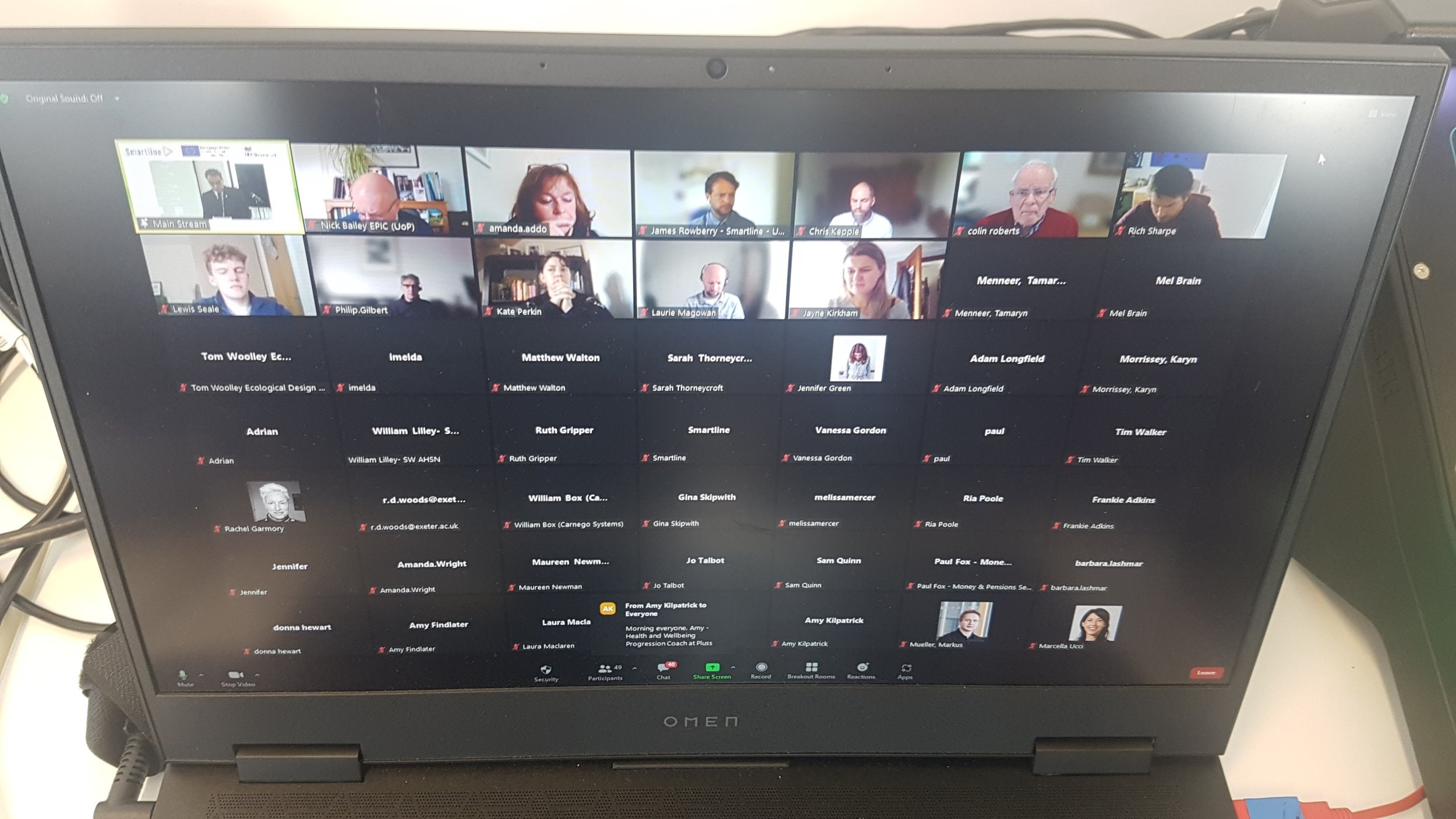
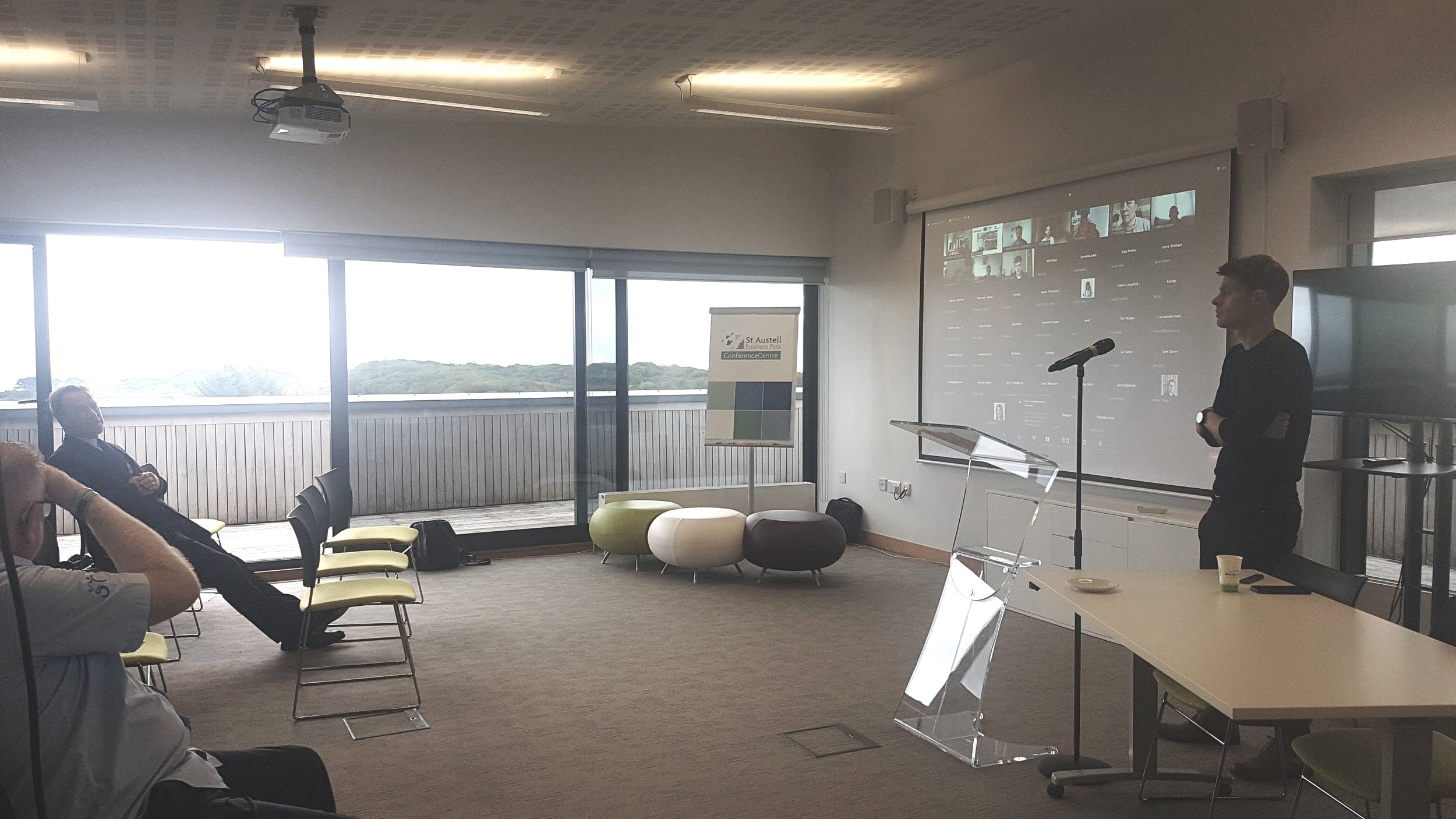
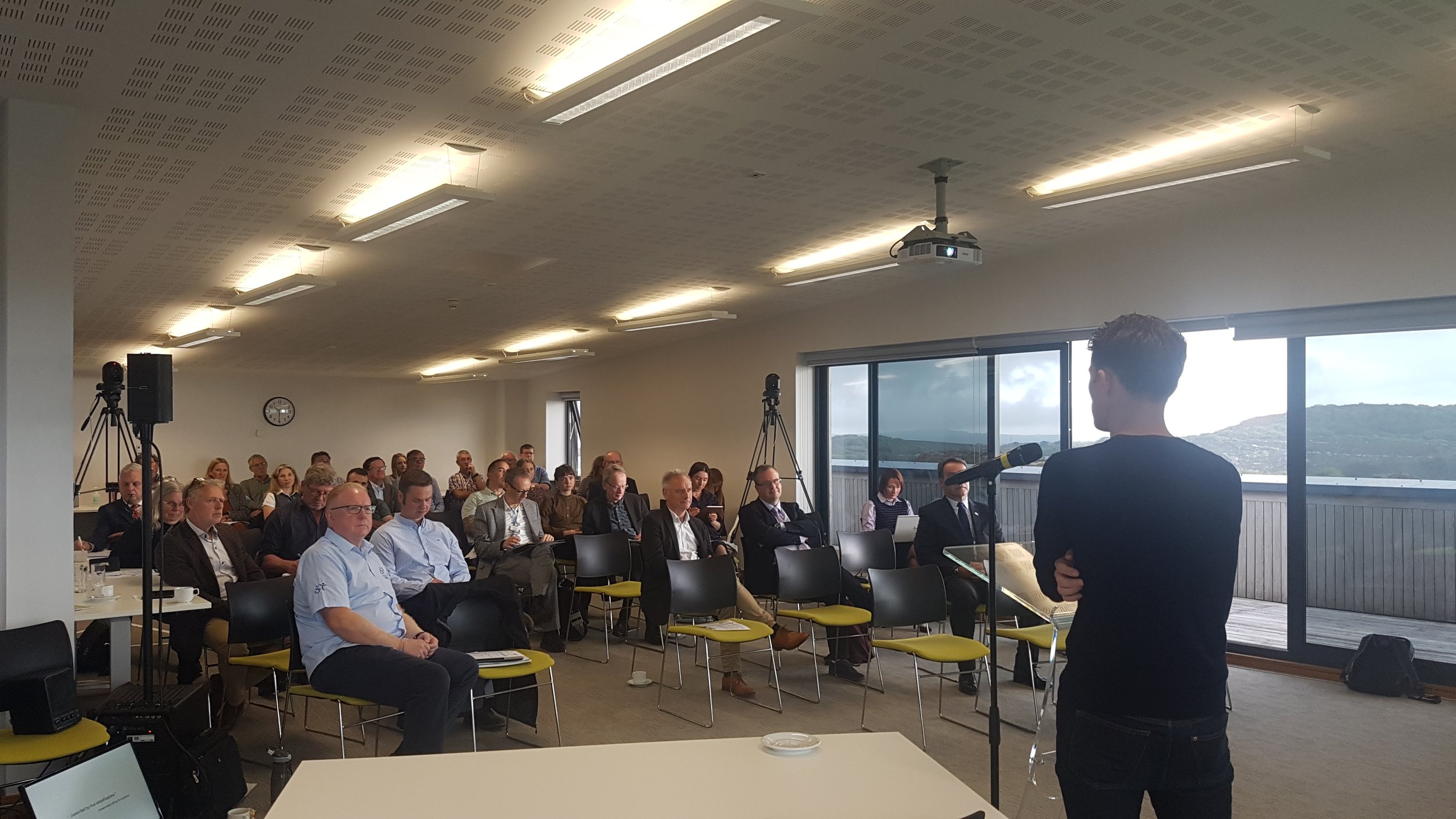
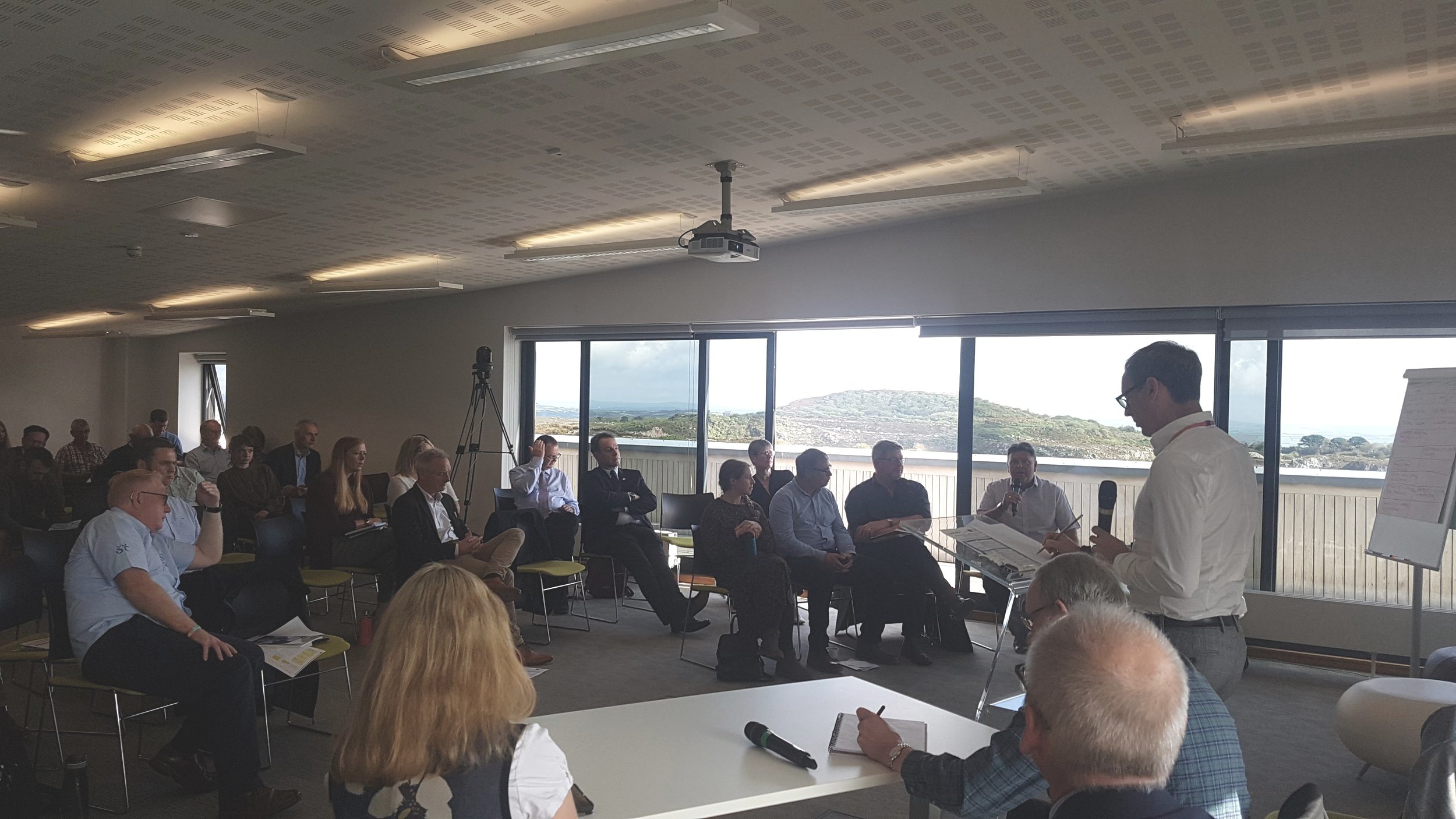
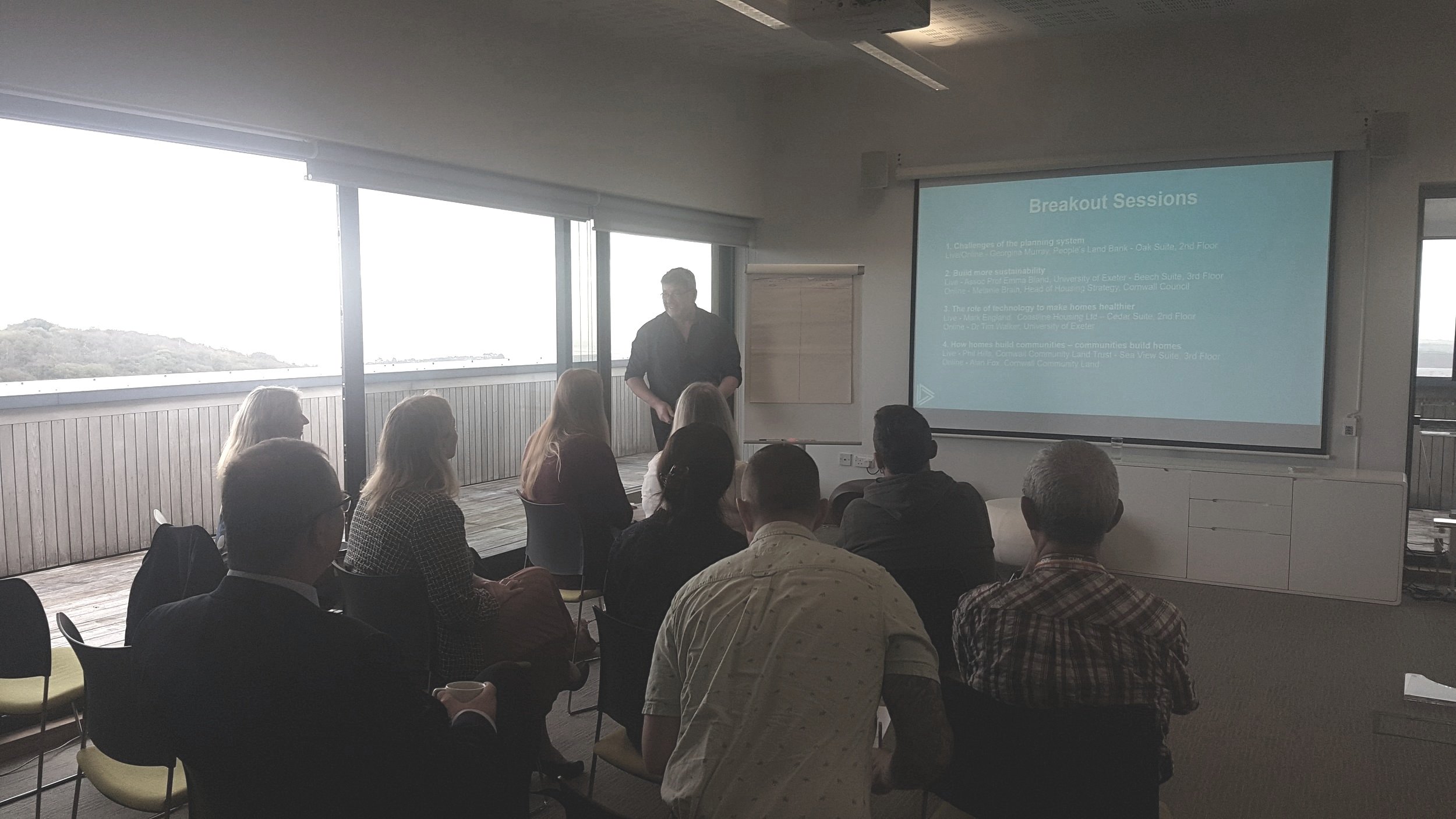
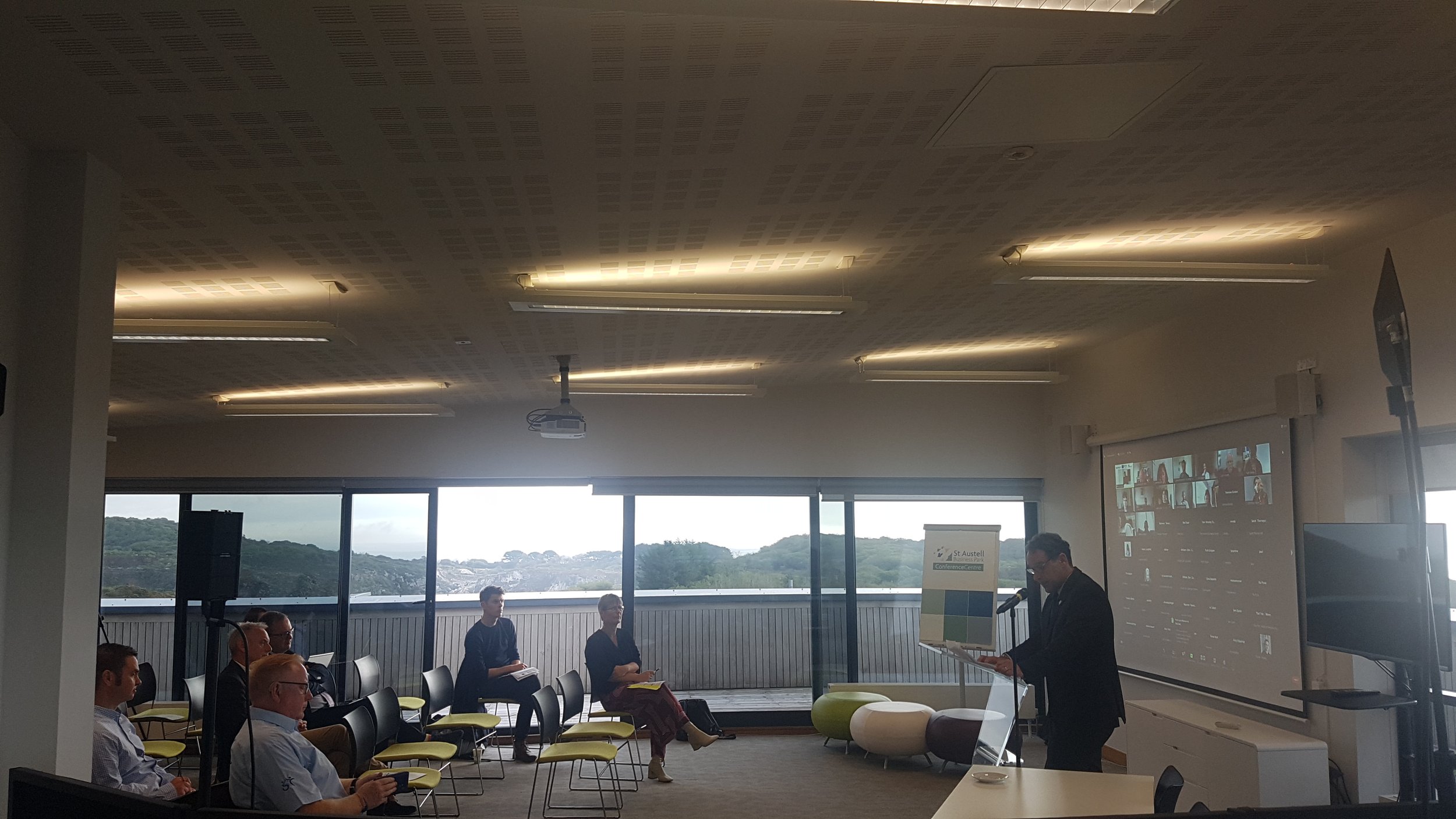
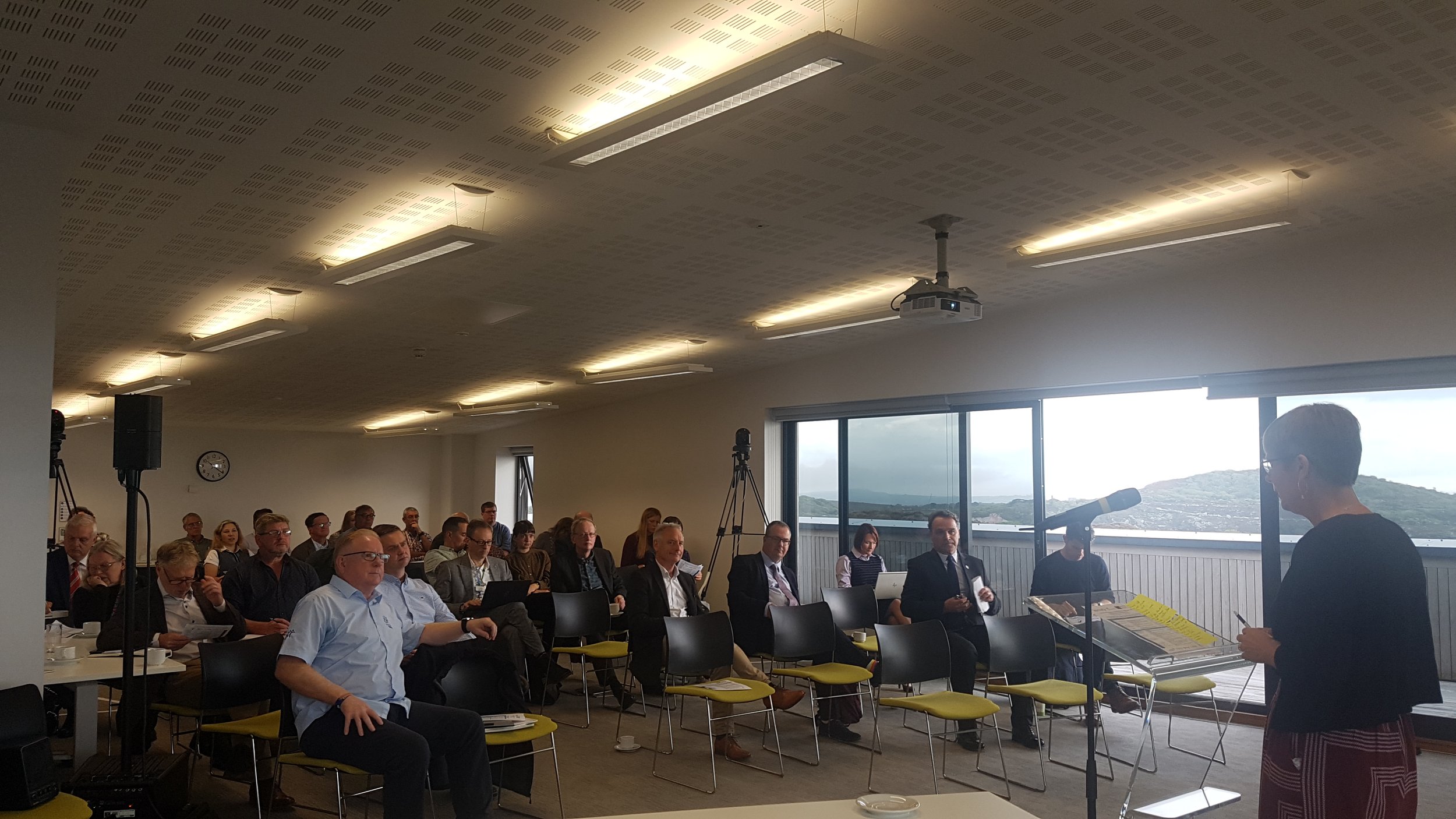
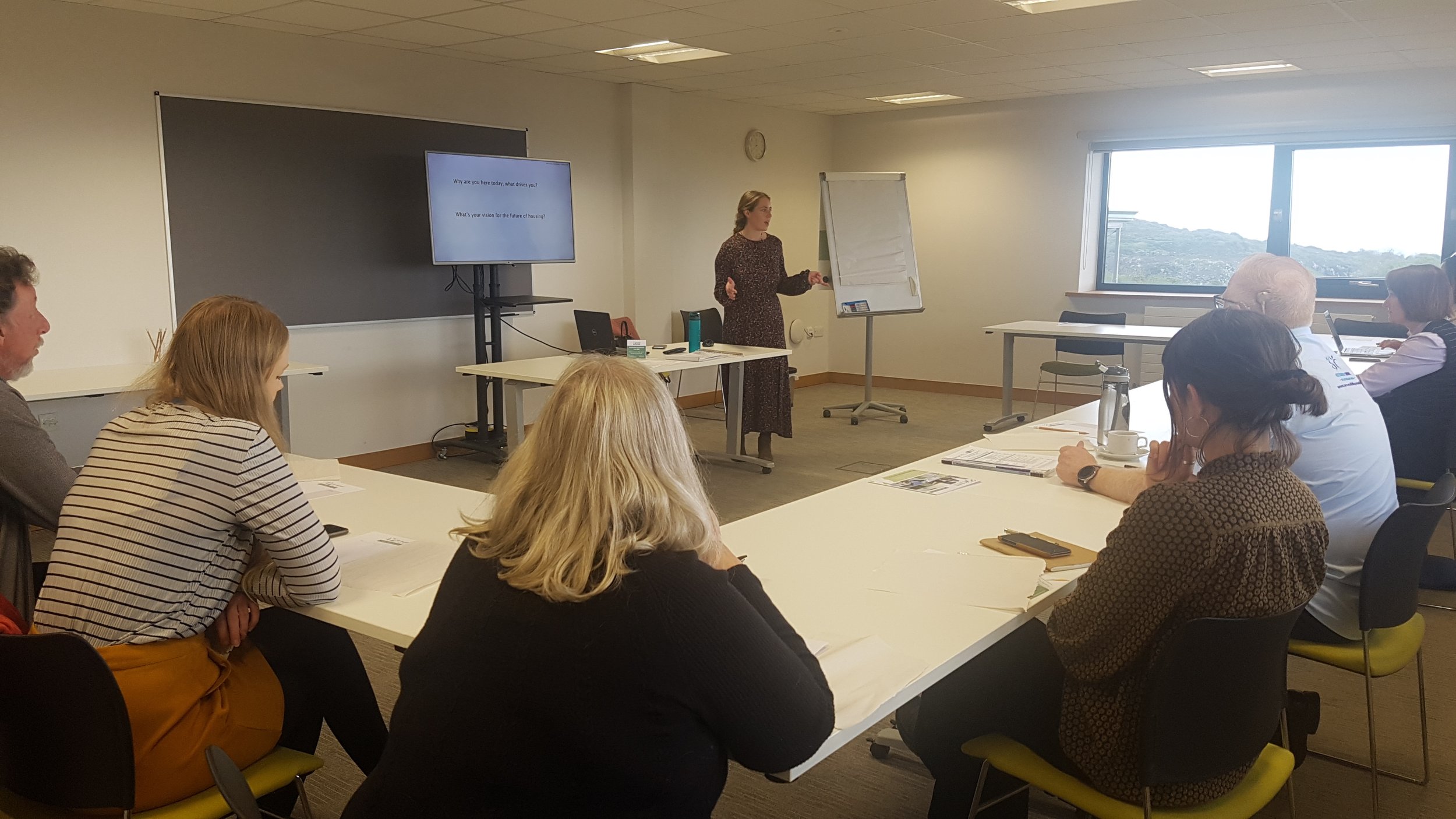
With thanks:
We’d like to thank everyone involved with hosting this event including our partners at the University of Exeter, Coastline Housing, Cornwall Council, Volunteer Cornwall and the South West Academic Health Science Network. The organising committee including Ambos, CNC Craft, Peoples Land Bank, Royal Cornwall Hospitals NHS Trust and the NHS. We’d also like to thank all of our amazing speakers and panellists, participants, JHAV Technical Services and St Austell Conference Centre.

